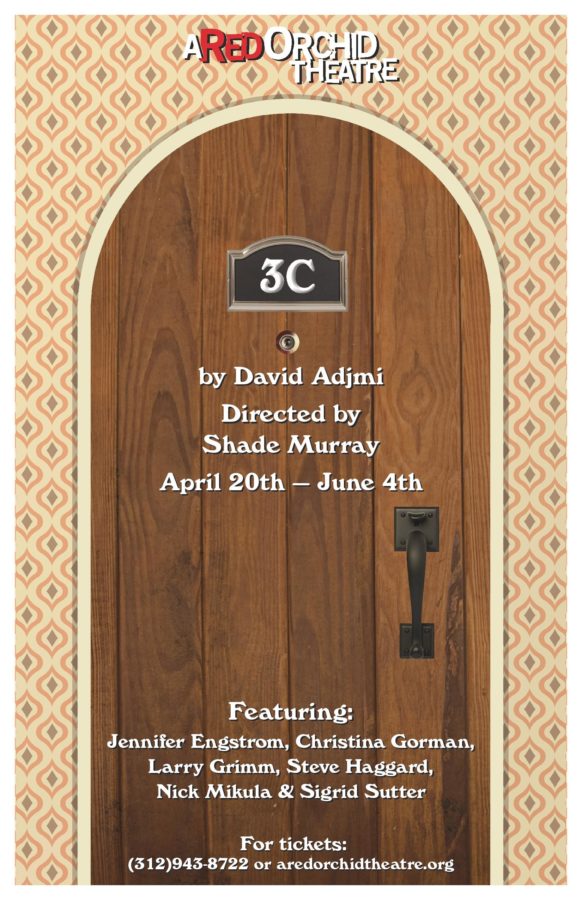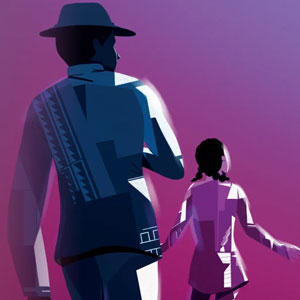
 [rating=2]The 70’s were famous for double-knit pantsuits, bellbottoms, spandex, big hair, disco and a multitude of inane, innocuous TV series. One of the most popular television comedies of that era was the silly sitcom, “Three’s Company.” Audiences born after 1984, the year the show ended its eight-season run, may be unfamiliar with the antics of Janet Wood, Chrissy Snow and Jack Tripper, their landlords, the Ropers, or their swinging friend, Larry Dallas. Older audiences will remember that these curiously comical characters all lived happily in an apartment building in sunny Santa Monica, California. They always got into scrapes but somehow managed to solve their problems in 30 fun-filled minutes.
[rating=2]The 70’s were famous for double-knit pantsuits, bellbottoms, spandex, big hair, disco and a multitude of inane, innocuous TV series. One of the most popular television comedies of that era was the silly sitcom, “Three’s Company.” Audiences born after 1984, the year the show ended its eight-season run, may be unfamiliar with the antics of Janet Wood, Chrissy Snow and Jack Tripper, their landlords, the Ropers, or their swinging friend, Larry Dallas. Older audiences will remember that these curiously comical characters all lived happily in an apartment building in sunny Santa Monica, California. They always got into scrapes but somehow managed to solve their problems in 30 fun-filled minutes. The humor of this farcical sitcom was mined from the ironic, narrow-minded social attitudes of that era. Promiscuity was rampant, but people pretended that everyone was chaste and pure. Hints of sexuality surfaced in jokes and double entendres, but was never portrayed outright. Television, in particular, forbade any honest depiction of what was happening in society. The censors wouldn’t allow real life to be shown. So we were entertained by a cast of frivolous, featherbrained, stereotyped characters, instead of being real human beings. Physical comedy ruled every episode, with carefully disguised sexual innuendo spicing up the situations.
The sitcom centered around the premise that Mr. Roper, whom his wife insinuated suffered from sexual disfunction, only rented his apartments to same-sex roommates. Chrissy and Janet, two of his tenants, were always behind in their rent, so they decide to relieve their financial woes by taking in a third roomy. Jack Tripper is a handsome, straight man studying to be a chef. But, since Mr. Roper would never allow mixed gender roommates to rent from him, the threesome convince their landlord that Jack is gay. Since he was thought to be homosexual, he posed no threat to Roper’s strict moral code; but since it was only a ruse, Jack’s sexual deception became the brunt of all manner of jokes.
David Adjmi’s dark comedy premieres in Chicago after a controversial run in New York. The 90-minute play is a satire, parodying this 70’s sitcom, but it carries the comedy much further. The playwright has skillfully written dialogue that mimics the original TV show. His characters, whose names have been changed to Linda, Connie, Brad, Mr. and Mrs. Wicker and Terry, reside in an apartment setting, designed by Sarah JHP Watkins, that’s similar to the one in “Three’s Company.” Myron Elliott has costumed the actors faithfully in the style of television characters. Even Brando Triantafillou,’s chirpy jingle, that opens the play, sounds surprisingly like Joe Raposo’s original theme song.

Directed with fervor by Shade Murray, the production authentically salutes the sitcom it’s parodying. However, the play soon crosses a line. Where the TV show pushed the envelope as far as the censors would allow, it was always politically correct. The underlying conflicts and emotional problems hidden inside each character become Adjmi’s focus. Linda (excellently played by Christina Gorman) is the Janet character. She’s the practical problem-solver, but has trouble getting dates, and is thought to possibly be a latent lesbian. Connie, the Chrissy stand-in, (brought to life by talented Sigrid Sutter), is an irresponsible blonde bimbo who speaks in hilarious non sequiturs. She always has more male attention than she can handle, but constantly fears being raped. The girls enjoy a love/hate relationship, enjoying each other’s company but constantly in competition for everything.
 Brad, the Jack Tripper role, is more difficult. Nick Mikula is a handsome, skilled actor in the role. Kudos to his bravery, making his first appearance totally naked, then later appearing only in a towel and then in women’s clothing. But, unlike Jack Tripper, Brad isn’t just pretending to be gay, he actually IS gay; but, true to the time period, he hasn’t come out yet. All of these inner conflicts take the characters to some complicated and very grim places. Eventually the laughters dies and the sitcom turns uncomfortable and ugly.
Brad, the Jack Tripper role, is more difficult. Nick Mikula is a handsome, skilled actor in the role. Kudos to his bravery, making his first appearance totally naked, then later appearing only in a towel and then in women’s clothing. But, unlike Jack Tripper, Brad isn’t just pretending to be gay, he actually IS gay; but, true to the time period, he hasn’t come out yet. All of these inner conflicts take the characters to some complicated and very grim places. Eventually the laughters dies and the sitcom turns uncomfortable and ugly.Lawrence Grimm plays smarmy Mr. Wicker, a sexually ambiguous, middle-aged man who seems to swing both ways. In one very awkward moment he grabs Linda in a manner that our current President would approve and proceeds to pleasure her. Another time Wicker sidles up to Brad on the couch and comes on to him, although it’s never clear if he’s merely joking or simply testing the waters. He’s matched somewhat by Steve Haggard’s Terry. Always hungry for another sexual conquest, Terry gives the allusion of a womanizing chick magnet. However, at other times, it appears as if Terry’s playing a game so that he’s able to playfully flirt with Brad. It’s all rather ambiguous.
The funniest performance comes from the incredibly talented, Jeff Award-winning Jennifer Engstrom. She creates a Mrs. Wicker who’s modeled after actress Audra Lindley’s Mrs. Roper, but taken to the extreme. Engstrom’s Mrs. Wicker is, among other things, bi-polar woman. Inflicted with uncontrolled manic depression, her character is a frantic roller coaster ride of emotions, gentle and sweet one minute, suddenly raging and shrieking the next. Medication is just a pill away, but Mrs. Wicker fears what medication might do to her. Eventually we finally find out.
This conclusion to Red Orchid’s 24th season is a real mixed bag. The play begins satirizing an over-the-top television genre that’s famous for glossing over reality. The characters are all buffoons, much like in the original “Three’s Company,” but they eventually settle down, opening up to reveal some much darker, internal problems. The problem is that they’re never resolved. There’s no real storyline, so the conflicts are strictly character-driven. It’s a fun premise, but ultimately unsatisfying as a play. Audiences may want to think twice about knocking at the door of apartment 3C.
” 3C” will run thru June 4th with performances as follows:
Fridays 8 p.m.
Saturdays 8 p.m.
Sundays 3 p.m.
Red Orchid Theatre, 1531 N. Wells, Chicago.
Tickets are $30-$35 and available by calling the box office at 312-943-8722 or by going to www.aredorchidtheatre.org.
To see what others are saying,visit www.theatreinchicago.com., go to Review Round-Up and click at “Apartment 3C”







More Stories
“Joe Turner’s Come and Gone”
“How I Learned What I Learned” reviewed by Julia W. Rath
“How to Know the Wild Flowers: A Map” reviewed by Julia W. Rath